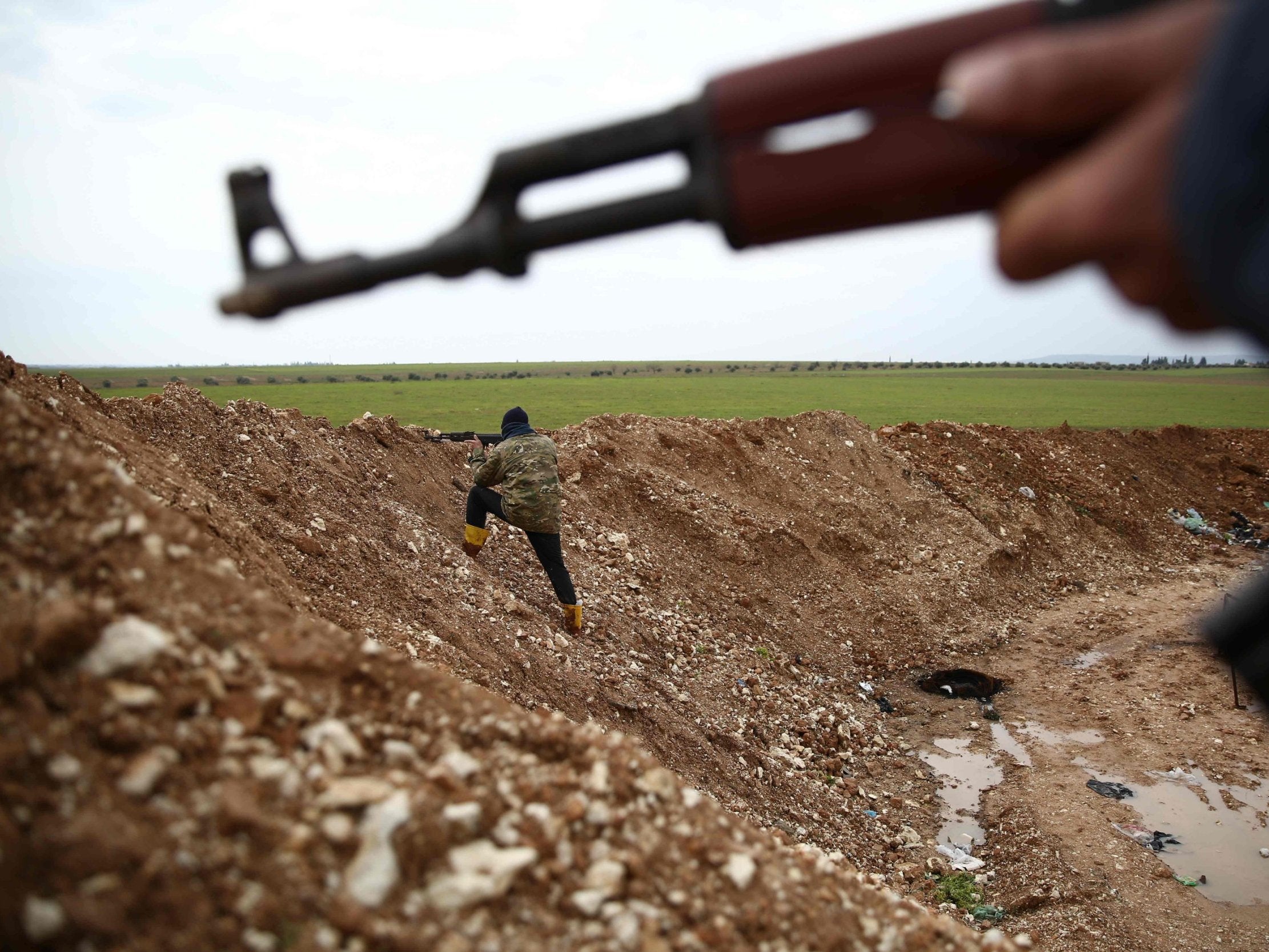Turkey says it will build 30km ‘safe zone’ inside Syria after reaching agreement with Trump
After threatening to devastate Turkey’s economy, the two leaders again appear on good terms

Your support helps us to tell the story
From reproductive rights to climate change to Big Tech, The Independent is on the ground when the story is developing. Whether it's investigating the financials of Elon Musk's pro-Trump PAC or producing our latest documentary, 'The A Word', which shines a light on the American women fighting for reproductive rights, we know how important it is to parse out the facts from the messaging.
At such a critical moment in US history, we need reporters on the ground. Your donation allows us to keep sending journalists to speak to both sides of the story.
The Independent is trusted by Americans across the entire political spectrum. And unlike many other quality news outlets, we choose not to lock Americans out of our reporting and analysis with paywalls. We believe quality journalism should be available to everyone, paid for by those who can afford it.
Your support makes all the difference.Turkey’s president announced his country had won US approval to establish a 30-kilometre “safe zone” in Syria along its border to keep groups it regards as terrorists away from its frontier, a plan that could put Ankara into armed conflict with America’s Kurdish partners.
“A safe zone that will be created in Syria by us alongside the Turkish border,” President Recep Tayyip Erdogan said in a speech before parliament, saying he had won American co-operation for the deal during a 14 January phone call with US president Donald Trump.
Mr Trump in a tweet on Sunday threatened to “devastate Turkey economically” if it struck Kurdish militias that had fought alongside US forces in the four-year battle against Isis in Syria, but also called vaguely for a 20-mile safe zone.
The cities of Qamishli and Kobani and several other key population centres controlled by Syrian Kurdish forces lie within 20 miles of the Turkish border, and it remains unclear how the US or Turkey would convince them to vacate territories they won from Isis and the Damascus regime of Bashar al-Assad and want as part of their autonomous Kurdish homeland in Syria.
The US president’s tweets prompted angry responses from senior Turkish officials. But Mr Trump and Mr Erdogan were apparently friendly during a phone call the following day.
“Some messages given from Mr Trump’s social media account have upset me and my friends,” Mr Erdogan said on Tuesday.
“We immediately acted and we discussed those issues with him on the phone again last night. It was a quite positive conversation.”
The two leaders “exchanged views on the creation of a terror-free safe zone in northern Syria on the basis of Syria’s territorial integrity”, said a Turkish readout of the conversation provided to international journalists.
Following a 14 December phone call with Mr Erdogan, Mr Trump stunned Washington, the world and close US allies, including the UK and France, by declaring a withdrawal of 2,200 or so American troops and hundreds of private contractors from northeastern Syria.
But his aides, including the hawkish national security adviser John Bolton, have been trying to add conditions to the US withdrawal, including safety for the People’s Protection Units, or YPG, a Syrian Kurdish armed force loyal to Abdullah Ocalan, founder of the Kurdistan Workers Party, or PKK, that Ankara, Washington and the EU consider a terrorist group.
According to the Turkish readout of Monday’s phone conversation, Mr Trump and Mr Erdogan agreed “to deny opportunities to all elements that seek to stop the withdrawal decision from being implemented”.
Turkish officials were uncharacteristically understated in response to Mr Trump’s bellicose threat against their economy, perhaps growing immune to the US president’s Twitter eruptions.
“The phone diplomacy between Erdogan and Trump seems to have softened the air,” journalist Murat Takan wrote on Twitter. “Trump is like a bull in a china shop. Because Erdogan is aware of this, he immediately activated phone diplomacy.”
Mr Trump had numerous business dealings with key Turkish figures before he became president. After the threat to “devastate” Turkey’s economy, Mr Erdogan said Mr Trump agreed to triple trade between the two countries from $22.4bn (£17.5bn) to $75bn (£59bn), the official Anatolia news agency reported.
Join our commenting forum
Join thought-provoking conversations, follow other Independent readers and see their replies
Comments